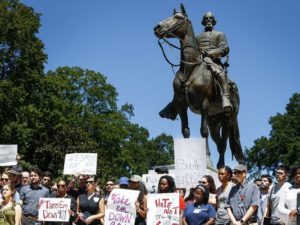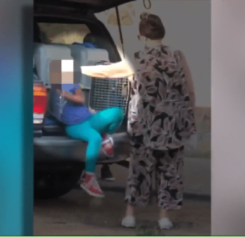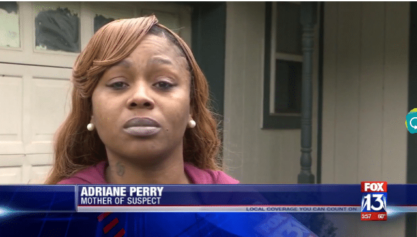
Memphis officials found a legal loophole to remove two Confederate statues late last year, angering state lawmakers.
Tennessee lawmakers are hungry for payback after the city of Memphis voted to remove two Confederate statues last year. So, they’ve decided to strip the city of a quarter of a million dollars as punishment for toppling the controversial monuments.
The Tennessee House of Representatives voted Tuesday to remove $250,000 from next year’s state budget, according to NPR. The funds had been previously earmarked to go toward planning for Memphis’ anticipated bicentennial celebrations.
“This amendment and the explanation, it is hateful, it is unkind, it is un- Christian-like and it is unfair, OK?” Democrat Raumesh Akbari said, condemning the surprise decision on the House Floor. “… Memphis is a city in this state, and I’m sick of people in this House acting like it is not.”
Legislators admit the move was in retaliation to Memphis’ discovery of a legal loophole that allowed it to remove statues honoring Confederate Gen. and KKK leader Nathan Bedford Forrest and Confederate President Jefferson Davis in December. The city sold two of its parks, one featuring the Forrest monument and the other featuring the Davis monument, for just $1,000 each, the news site reported.
State lawmakers had reportedly been debating all session on how to get back at Memphis for circumventing the law protecting Confederate memorials. Republicans like Rep. Gerald McCormick (R-Chattanooga) defended the decision to refuse funding for the bicentennial celebrations, saying there must be consequences for showing disregard for the will of the legislature.
“I think the city of Memphis, like any other city in the nation, needs to if not obey the law, at least obey the spirit of the law,” McCormick said. “The law was very clear, and they got smart lawyers to figure out how to wiggle around the law.”
Democrat Bo Mitchell disagreed, warning the surprise move could lead to “bad consequences” not only for Memphis but the nation as a whole.
“What you’re doing here today is the bad actions of someone who brought arms against their nation and fought against our country, committed treason, then was a proven war criminal, and was slave trader,” Mitchell said, referring to Forrest. “You’re going to choose to honor that person here on this floor today and hold it against a city.”
Though the controversial amendment has already passed the House, the spending bill that’s attached to it is still making its way through the state legislature.
Memphis is set to celebrate its bicentennial in 2019.


